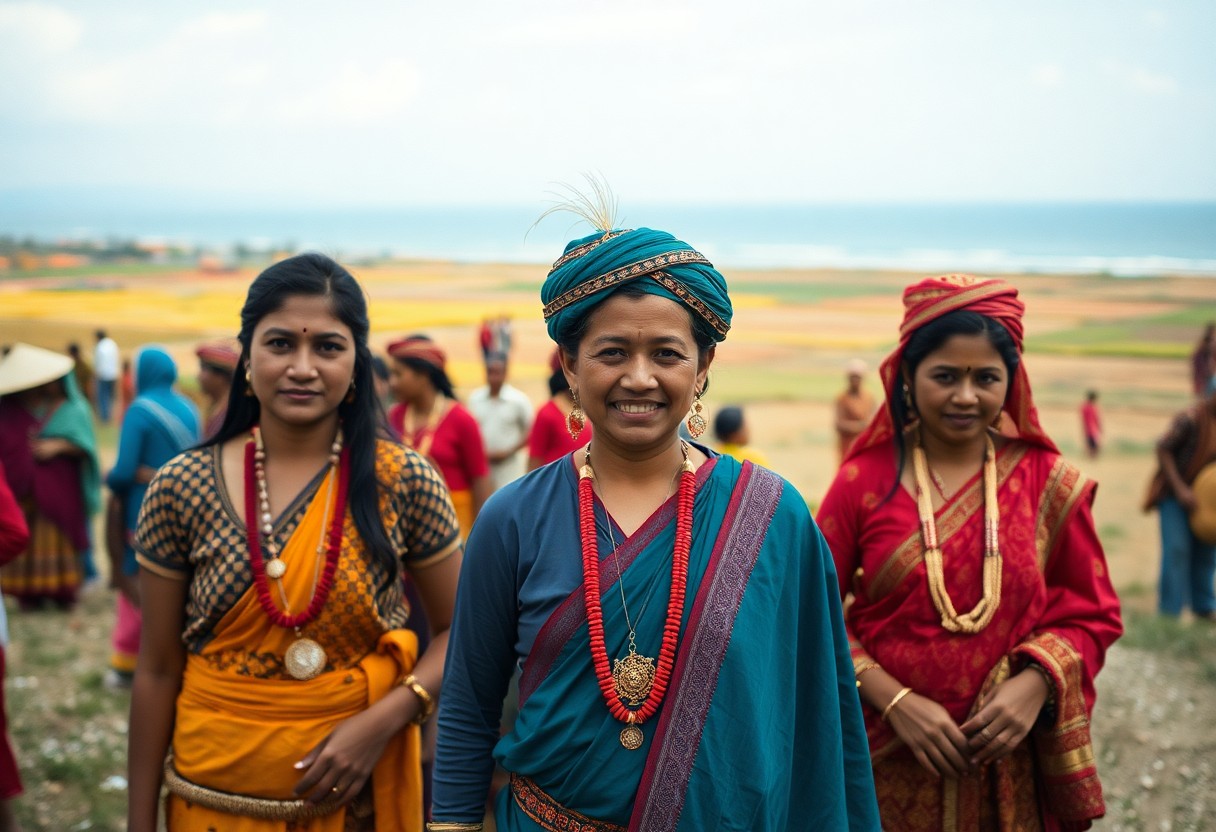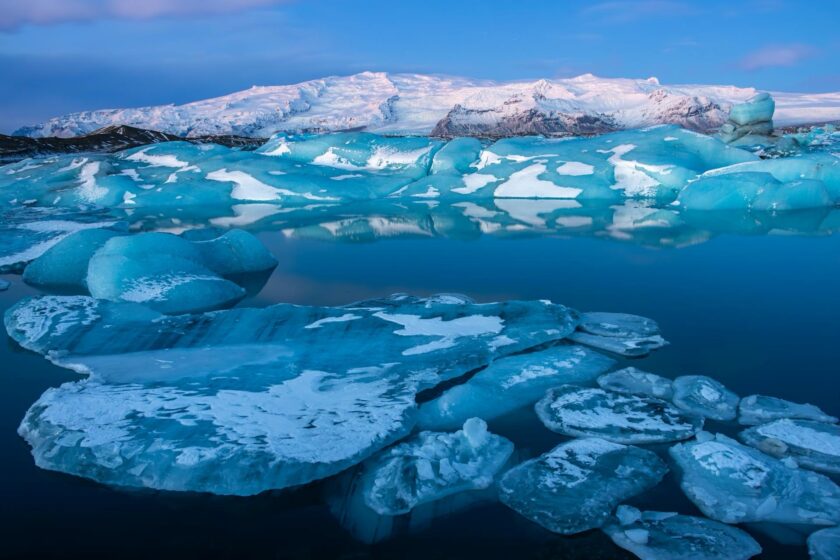You may be surprised to discover just how deeply the climate crisis is affecting global traditions and cultural practices. As climate change progresses, traditional customs, rituals, and even festivals that have been passed down through generations face significant challenges. This blog post researchs into the various ways in which shifting weather patterns, natural disasters, and resource scarcity influence your cultural heritage, shedding light on the broader implications for communities worldwide. Understanding these impacts is crucial as we navigate a future where traditions may need to adapt in response to our changing environment.
Understanding the Climate Crisis
While the climate crisis poses immense challenges to our planet, it also compels us to reflect on our relationship with nature and the traditions we hold dear. You must understand that the impact of climate change stretches far beyond just environmental concerns, infiltrating aspects of culture, heritage, and daily life. Addressing this multifaceted issue requires awareness and initiative from each of us, emphasising the interconnectedness of our actions and their consequences on a global scale.
Definition and Causes
Beside the evident rise in global temperatures, the climate crisis entails shifts in weather patterns and increasing frequency of extreme weather events. Primarily driven by human activities such as burning fossil fuels, deforestation, and industrial processes, these factors contribute to the accumulation of greenhouse gases in the atmosphere. You should be aware that the resultant changes threaten biodiversity and disrupt established ecosystems, leading to profound effects on your environment and ways of life.
Current Trends and Data
At this time, the data indicates alarming trends in climate patterns, with a significant rise in average global temperatures and a notable increase in occurrences of natural disasters. The Intergovernmental Panel on Climate Change (IPCC) reports that the past decade has been the hottest on record, underscoring the urgency of the situation. You can recognise that these changes not only affect the environment but also pose risks to food security, water resources, and public health.
With sustained monitoring and analysis, experts reveal that the effects of climate change are becoming increasingly evident. Rising sea levels threaten coastal communities, while changing precipitation patterns lead to severe droughts and flooding in various regions. You need to stay informed about these evolving conditions, as they directly impact traditional practices and cultures worldwide. As you adapt to these realities, understanding the implications of such data is imperative for fostering resilience and encouraging sustainable practices in your own life.
Cultural Traditions Affected by Climate Change
One of the most profound effects of climate change is its impact on cultural traditions worldwide. Rituals, customs, and practices that have been passed down through generations are experiencing shifts due to changing environmental conditions. As weather patterns become less predictable, cultural celebrations and agricultural cycles are disrupted, leading to a loss of identity and heritage in many communities. Observing these changes can help you understand the intricate connection between culture and the environment, ultimately highlighting the need for preservation and adaptation.
Indigenous Practices and Environmental Adaptation
One of the most affected groups are Indigenous communities whose traditional practices often rely on the stability of their local ecosystems. As climate conditions shift, these groups have had to adapt their practices to maintain harmony with their surroundings. This adaptability not only ensures their survival but also reinforces the important role these traditions play in ecological stewardship. By learning from Indigenous peoples, you can gain insights into sustainable practices that respect both culture and nature.
Festival Traditions and Seasonal Changes
Any shift in seasonal patterns can have a significant effect on festivals that are intrinsically linked to specific times of the year. As seasons become more unpredictable, festivals celebrating harvests or natural phenomena may move or even vanish altogether. This can lead to a disconnection from the rhythms of nature and local heritage. Awareness of these changes encourages you to appreciate the role of seasonal festivals in fostering community spirit and cultural identity.
To grasp the full impact of changing seasons on festival traditions, you must consider how these events are woven into the fabric of community life. Festivals often serve as a reflection of agricultural cycles, marking times for planting and harvest. When climate change alters these cycles, you may witness a ripple effect that affects not only local economies but also the cultural significance attached to these celebrations. Engaging with these shifts can deepen your understanding of the interconnectedness between climate, culture, and community resilience.
Case Studies of Impacted Regions
Clearly, the effects of the climate crisis are evident in various regions globally, significantly altering local traditions and ways of life:
- Maldives: Over 80% of land is less than 1 metre above sea level, threatening cultural heritage.
- Bangladesh: Nearly 20 million people displaced by flooding by 2050, impacting local customs.
- Siberia: Permafrost thawing affects Indigenous practices, with temperatures rising 2°C since 1970.
- Australia: Increased bushfires have ravaged Indigenous lands, disrupting ceremonies and traditions.
- West Africa: Erratic rainfall has led to a 20% decrease in traditional farming practices over the last decade.
Coastal Communities and Rising Sea Levels
Before you dismiss the importance of rising sea levels, consider that coastal communities are at the forefront of climate impact. Places like Venice and New Orleans are grappling with frequent flooding, endangering their unique cultural identities and historic sites. As waters rise, traditional livelihoods linked to the sea face extinction, resulting in a profound loss of heritage.
Agricultural Societies and Changing Weather Patterns
An increasing number of agricultural societies are experiencing the repercussions of changing weather patterns. With unpredictable weather disrupting planting and harvesting seasons, the very foundation of traditional farming is at risk.
Case studies from regions like sub-Saharan Africa highlight that erratic rainfall has led to crop failures affecting around 50 million people. This volatility not only threatens food security but also impacts seasonal festivities linked to harvests. Communities that rely on predictable weather for farming traditions are finding their cultural practices strained as generations of knowledge become obsolete. You may need to understand how these shifts compel societies to adapt or risk losing their cultural heritage entirely.
The Role of Globalization in Tradition Preservation
Unlike previous eras, globalization acts as a double-edged sword in tradition preservation. It enables the sharing of cultural practices across borders, allowing you to experience diverse customs and arts. However, it also poses risks of homogenisation, where local traditions may become diluted or overshadowed by dominant global cultures. Maintaining a balance between embracing global influences and cherishing local heritage is necessary for the survival of unique traditions.
Migration and Cultural Exchange
Against the backdrop of migration, cultural exchange thrives as people bring their traditions to new environments. This movement can reinvigorate local customs, allowing you to witness the fusion of diverse practices. As communities blend, unique traditions may evolve, offering new perspectives while honouring ancestral roots. You might find that the intermingling of cultures enriches your own understanding and appreciation of global traditions.
Technology in Traditional Practices
Exchange of ideas and innovations through technology has increasingly shaped traditional practices. You can witness artisans using modern tools and platforms to enhance their crafts while remaining true to their cultural roots. This blending creates new avenues for preserving age-old techniques and passing them down through generations, ensuring that traditions remain vibrant and relevant in an ever-changing world.
A fascinating aspect of technology in traditional practices is the way it facilitates the dissemination of knowledge and skills. Online platforms allow you to access tutorials, workshops, and community forums that support artisans and cultural practitioners in sharing their expertise. Furthermore, social media plays a vital role in promoting awareness of different traditions, enabling you to engage with communities and celebrate their heritage. Such exchanges foster a sense of unity and collective progress while ensuring that your understanding of various cultures continues to deepen and evolve.
Adaptation Strategies for Cultural Preservation
To effectively adapt to the climate crisis while preserving your cultural heritage, a range of strategies can be employed. These may include community engagement initiatives, sustainable practices, and integrating traditional knowledge with modern technology. By taking a proactive approach, you can help ensure that your traditions not only survive but thrive in an ever-changing environment.
Community-Led Initiatives
CommunityLed initiatives can play a vital role in cultural preservation amidst the climate crisis. By engaging with local knowledge and traditions, you can foster a sense of ownership and responsibility among community members. This collaboration often results in innovative approaches to environmental challenges, enabling you to maintain your cultural identity while simultaneously addressing the pressing issues posed by climate change.
Government Policies and Support
One significant aspect of preserving cultural traditions in the face of climate change involves engaging with government policies and support systems. These policies can provide you with the resources needed to adapt and protect your cultural heritage.
Further, governments can implement frameworks that recognise the importance of cultural preservation in their climate action plans. By advocating for funding and resources specifically aimed at supporting traditional practices, you can amplify your community’s voice, ensuring that your cultural identity remains integral to broader environmental strategies. Collaborating with government agencies can facilitate partnerships that not only enhance resilience but also empower you to safeguard your invaluable traditions for future generations.
The Importance of Advocacy and Education
All individuals play a significant role in advocating for sustainable practices and promoting education on climate issues. Your understanding, coupled with proactive measures, can contribute to a larger movement that combats the climate crisis. By engaging with various platforms, you can amplify your voice and inspire others to take action, ensuring that your perspective on climate change resonates with wider communities.
Raising Awareness
Across the globe, grassroots movements are emerging to raise awareness about the devastating effects of climate change on traditions and cultures. You can take part in these initiatives by sharing information through social media, organising local events, or participating in campaigns that highlight the urgent need for climate action. By spreading knowledge, you help to foster a collective consciousness on the topic.
Engaging Future Generations
Before you can expect sustainable change, you must invest in the education and awareness of future generations. Teaching young people about the intricacies of climate change and its impact on diverse traditions equips them with the tools necessary to advocate for their communities. This engagement can take many forms, from school projects to community workshops.
To effectively engage future generations, you should focus on creating interactive and inspiring learning experiences. Encourage discussions about cultural traditions and how they are affected by environmental changes. By providing hands-on activities and real-life examples, you instil a sense of responsibility and empowerment in young minds. This approach not only nurtures awareness, but also inspires them to be the advocates for change, ensuring that their voices contribute to the ongoing dialogue on climate issues.
Final Words
The climate crisis significantly impacts global traditions, reshaping cultural practices and heritage as environmental changes disrupt local ecosystems. As you navigate this shifting landscape, it is vital to recognise how your actions contribute to the preservation of these traditions. Engaging in sustainable practices not only benefits your community but also helps safeguard cultural identities that are at risk. By understanding the connection between climate and tradition, you can play an active role in fostering resilience and continuity for future generations.




